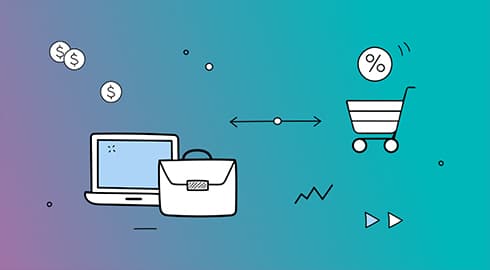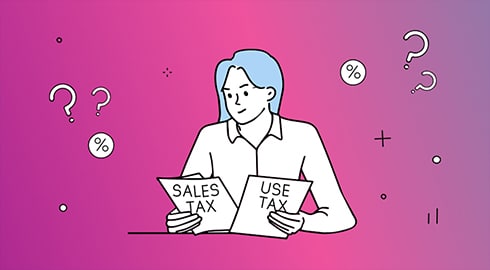When it comes to sales tax returns, there are several compliance errors that businesses encounter.
But if you’re able to answer a few simple questions, you should be able to avoid most of the pitfalls. The trouble is, the simplicity of the questions may be somewhat misleading when you enter the complex world of sales tax compliance.
Yet that doesn’t mean these questions can go unanswered for too long if you want to avoid exposure.
1. Do I need to collect US sales tax?
The obligation to collect and remit sales tax begins once you’ve triggered a sales tax nexus.
To determine whether you have a nexus you need to know whether you sell taxable goods, have a physical presence in a state, and have reached the economic nexus threshold within the state you’re doing business in.
For brick-and-mortar companies dealing in physical goods, these points are rather easy to answer. Businesses with an online presence or that deal in digital goods and services have a more difficult time determining these elements. Because each state’s sales tax laws approach nexus triggers differently.
2. What do I do once I’ve triggered a sales tax nexus?
Once you’ve triggered a nexus in a state, the first step is to register for a sales tax certificate within that state. Now each state has different timeframes that determine how soon you should register after your nexus comes into existence. So it’s vital to contact the applicable state’s tax authorities immediately.
Once you have the legal go-ahead to start collecting sales tax, you need to calculate the correct sales tax for each transaction or product, collect the amounts, keep track of them, and file tax returns on time once you start remitting the collected amounts.
3. How does sales tax affect my eCommerce store or SaaS business?
The digital landscape has opened countless doors to business growth. But along with the growth has come an increased responsibility to pay close attention to sales tax compliance.
For eCommerce stores, the biggest challenge is to keep track of sales and the company’s footprint. Because while economic thresholds are easy to monitor, you can also trigger a physical presence nexus through remote teams and third-party affiliate programs.
For SaaS businesses, the challenge lies in accepting the complicated nature of evolving tax laws in multiple states. While physical goods are taxed by default in most states, digital goods and services are new to the tax law realm and legislation is slowly being updated in each state to accommodate the evolving market.
For both of these digital-based business models, the importance lies in keeping track of both your company’s activity and each state’s tax laws in which you may have triggered a nexus.
5. What do I do when dealing with tax-exempt buyers and resellers?
Working with tax-exempt customers can seem like a much-needed break from sales tax obligations. Not needing to calculate or collect sales tax simplifies things, doesn’t it? Not entirely.
Tax-exempt buyers can fall within two categories: resellers who don’t need to pay sales tax because they aren’t the final user of the product or tax-exempt businesses like non-profit organizations.
Each of these buyer types needs to be able to prove that they’re exempt by supplying you with a Tax Exemption Certificate or Resale Certificate. You, the seller, need to ensure that the certificate is valid and complete and keep it filed safely away once tax season comes around. Because you need to be able to prove that you didn’t collect sales tax only from truly exempt buyers.
So what do you do when the questions just get too much?
Being able to answer these questions is the start of sales tax compliance. But answering them correctly each time can be difficult.
That’s why you need a sales tax automation tool that answers them for you without you having to lift a single finger or give your sales tax a second thought.
Successfully navigating sales tax returns requires careful attention to record-keeping, timely filing, and maximizing deductions. By asking yourself these essential questions and leveraging the power of technology, you can ensure that your business remains compliant and avoids unnecessary complications. Stay proactive, stay informed, and reap the rewards of successful sales tax returns.
Complyt gives you the tools at your fingertips to calculate, collect, and remit sales tax as soon as you have triggered a nexus. And instead of requiring you to continuously update your dashboard or data, Complyt keeps you up to date with the latest changes in the sales tax realm, ensuring compliance as state law evolves.
See how Complyt can help you answer your sales tax questions.









